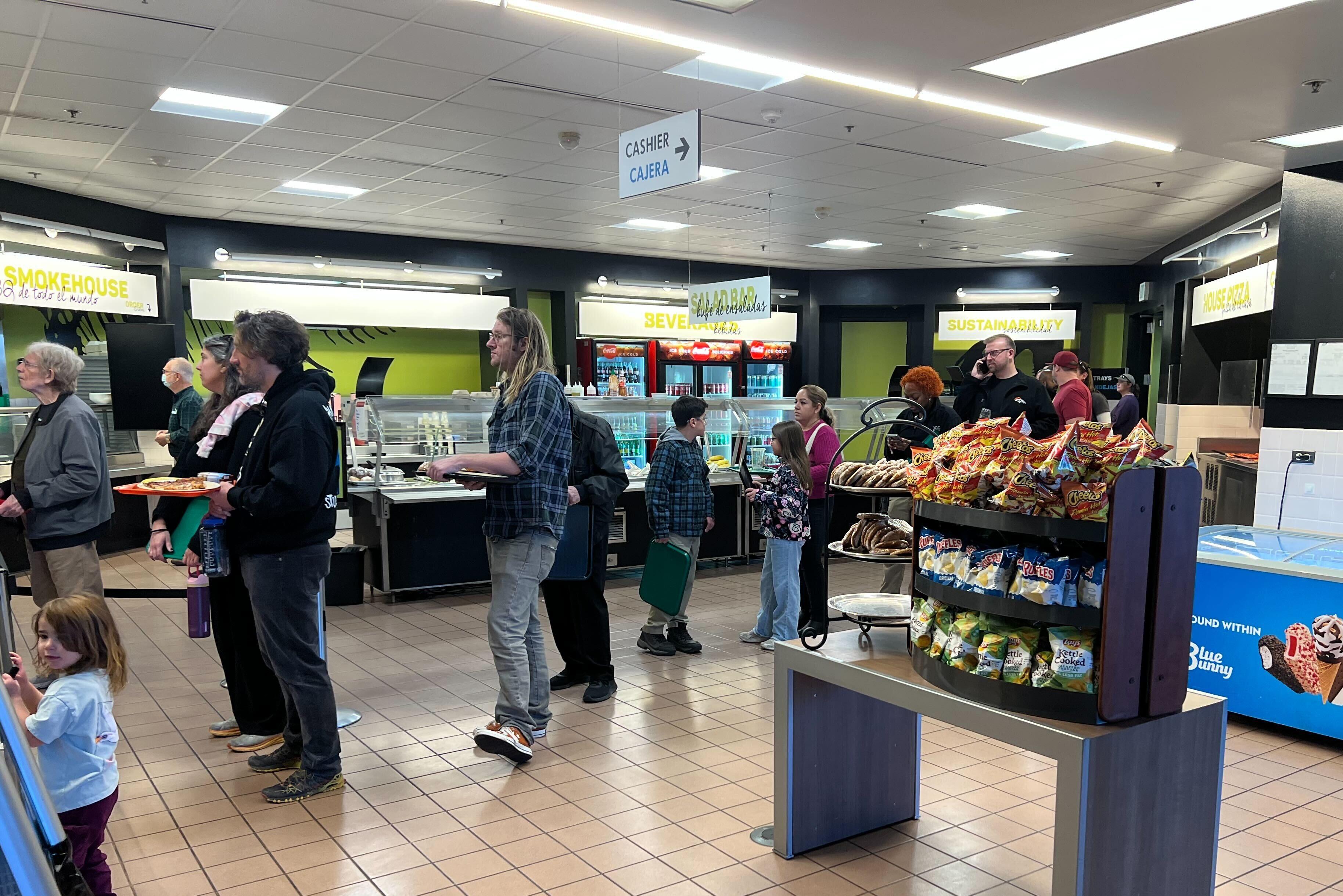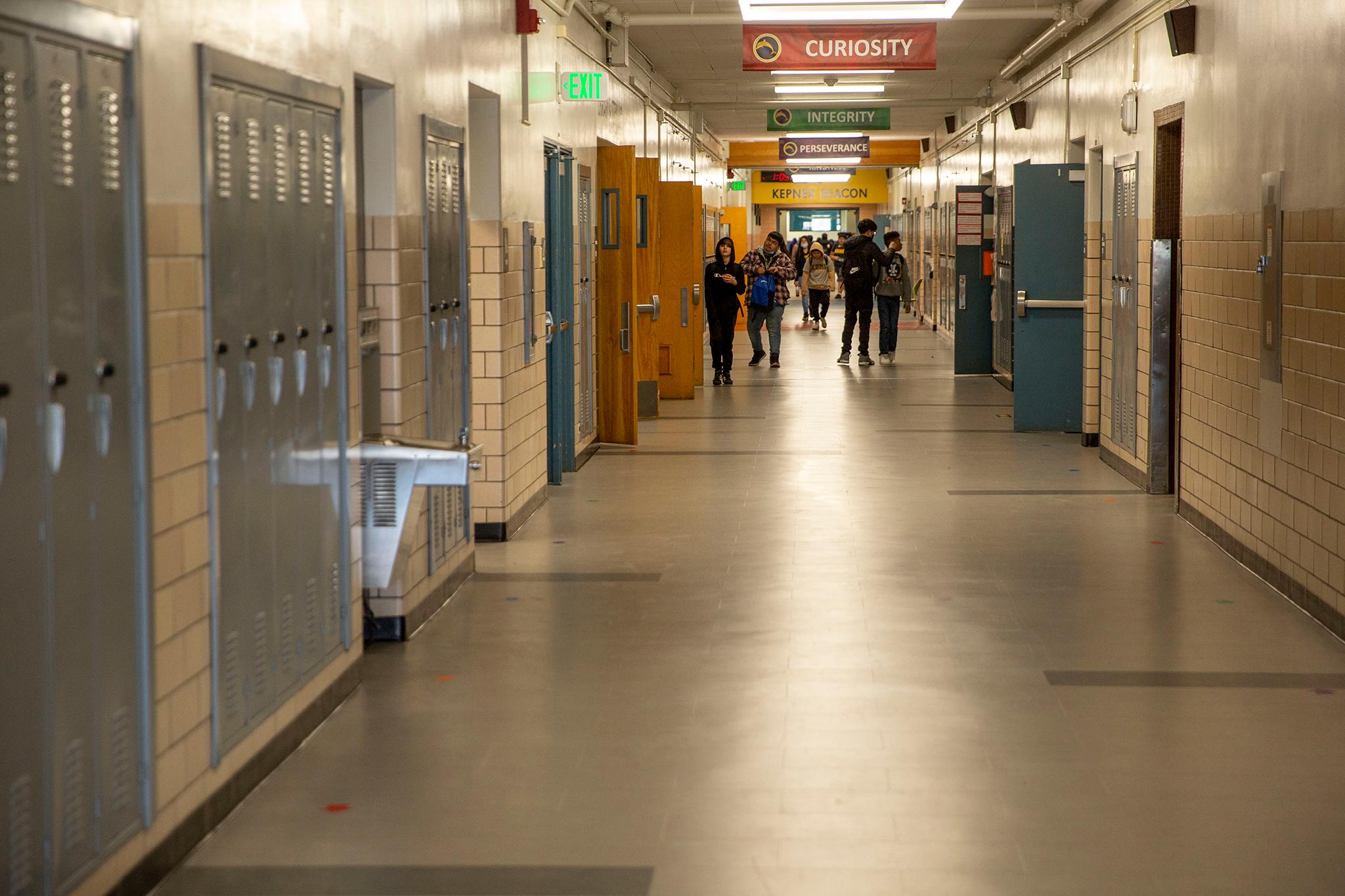More than 200 people gathered at the Loretto Heights campus Tuesday night to play city planner and envision a new, vibrant district on the sleepy, 72-acre plot in southwest Denver that once housed various colleges, most recently Colorado Heights University.
All we know for sure is that the land will become a "mixed-use" area, according to developer Westside Investment Partners. So, a place for people to live, work and spend money to have fun -- perhaps with shops, restaurants and maybe even the May Bonfils Stanton Theater, or at least some restored version of it. The venue is "the largest cultural asset in southwest Denver," according to Historic Denver.
"It's a blessing because it's unique, it's an element to not only the project but the community," said Mark Witkiewicz, the principal of Westside. "At the same time it's a curse because it's a big theater. And big theaters are hard to fill, hard to operate from a cost standpoint."
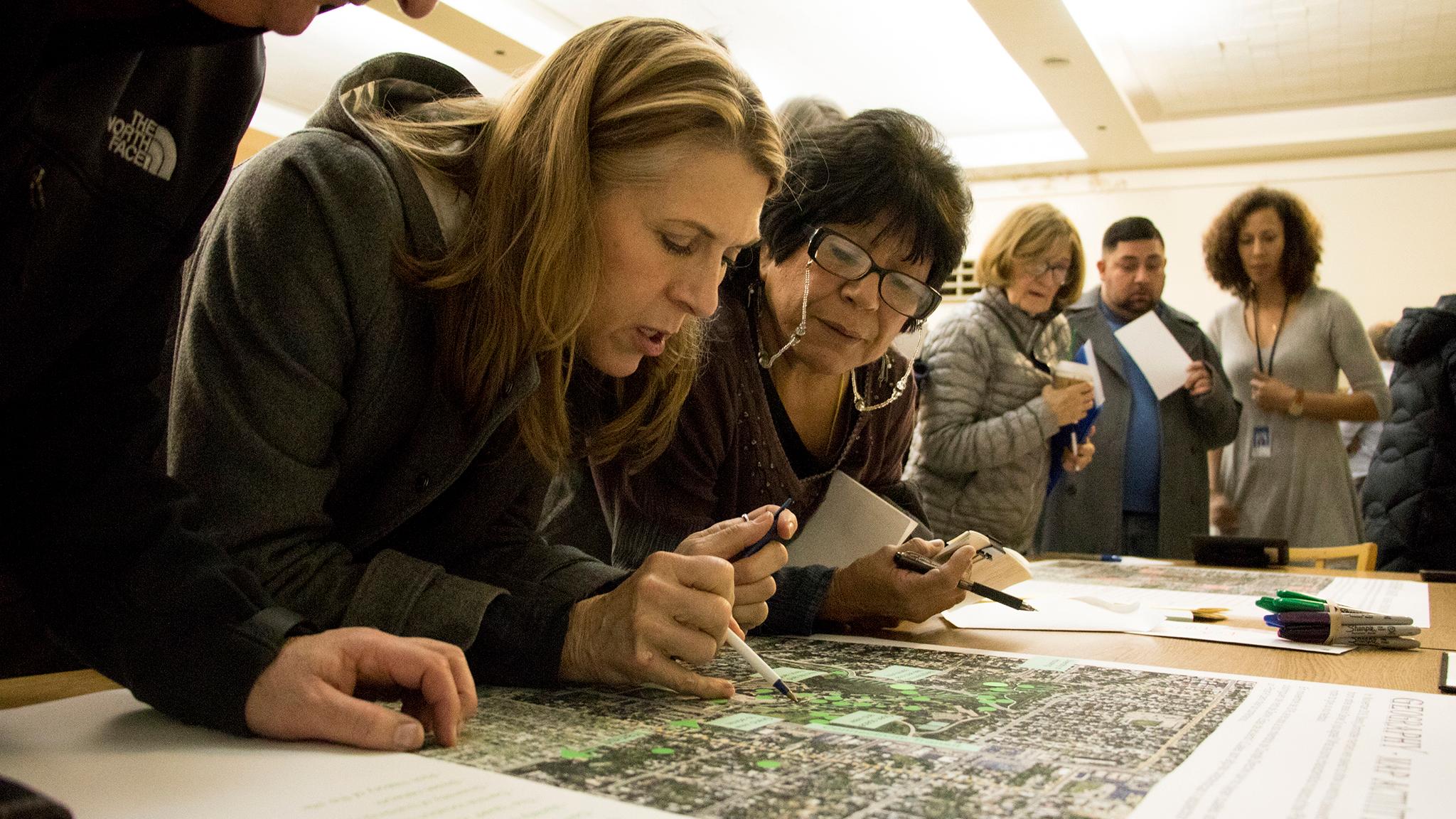
Preserving the theater is a maybe. A consultant is examining the historic building to understand what it would take to preserve or adapt it, and whether there's a market to sustain the venue.
"I would love to find a way to preserve the theater, the May Bonfils Stanton Performing Arts Center," said City Councilman Kevin Flynn. "Down the road, that theater could be the anchor to everything that happens here."
So what is going to happen there? Witkiewicz said it's too early to say.
"What we're listening for are common themes, and among those common themes we can put together a great project that is a gift to the community, and at the same time something that I'm going to be very proud of as a developer," Witkiewicz said.
As Flynn put it, "Imagine if southwest Denver finally had a gathering spot."
First you get the vision. Then you get the zoning. Then you get the housing. But what kind and how much?
The point of Tuesday night was to let area residents (and anyone else) weigh in on the sites future. Should there be trees, for instance? Resoundingly yes. After the city planning department writes a plan with public input -- a one-year process -- elected officials will rezone the area. Then the developer will start building.
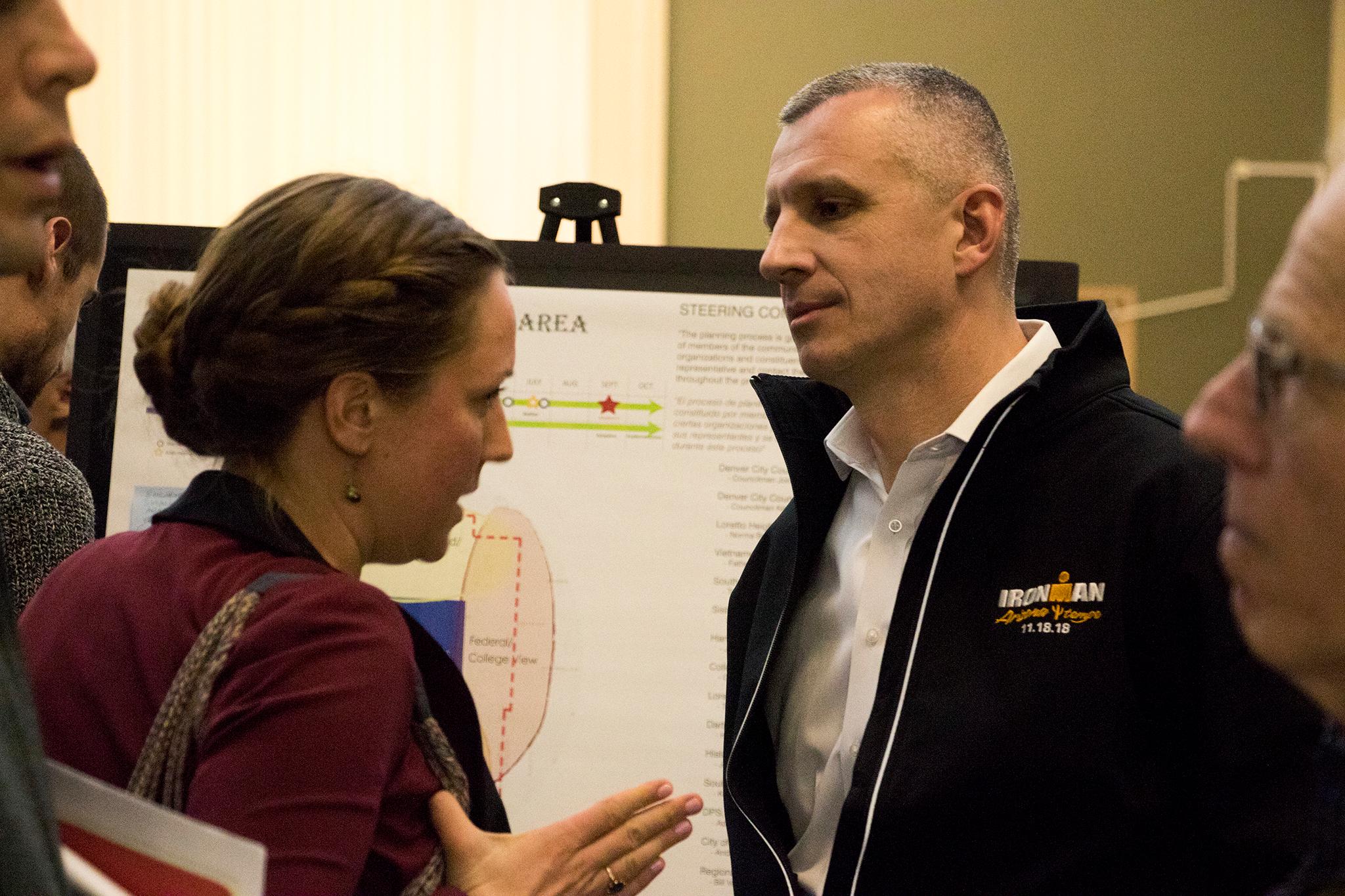
But when it comes to new housing in a city with a shortage, the future of this site is anyone's guess. If housing was left totally up to some residents, they wouldn't change much at all.
Mike and Teresa Kayton live about a mile from the Loretto Heights campus. They want some new restaurants and a bit of new homes -- mostly single-family houses. But they're worried tall apartment buildings will ruin their views of the historic structures, and that low-priced housing will sag their property values.
"I don't want to see houses for like $200,000. That's low... We don't want the value to go down. I understand people need places that they can afford, but I don't want it here. I'm greedy," she said, laughing.
Others are on a different tip. Allyson Rogers and Tyler Muma live in nearby Harvey Park and want to see diverse housing options -- plenty of apartments and condos in the core of the district with single-family homes on the edge.
"I think there's an opportunity whenever you develop an area where there are shops, businesses, you can have apartments along with that so you're giving people access," Muma said. "I think a lot of time it's easy to say that people don't want affordable housing, then people don't want it near them. And I don't think that's a fair thing to do. I think mixed (housing) helps everyone."
Muma and Rogers have lived in Atlanta and downtown Littleton, and miss the walkability, they said.
Flynn says his job is to "represent my district to downtown Denver, not represent downtown Denver to my district."
The Hancock administration and Denver City Council have goals to increase the affordable housing stock in a city where about half of rental households and a third of all households struggle with housing costs. The city has laid out aggressive climate goals as well. Attainable, compact, walkable housing would aid those goals.
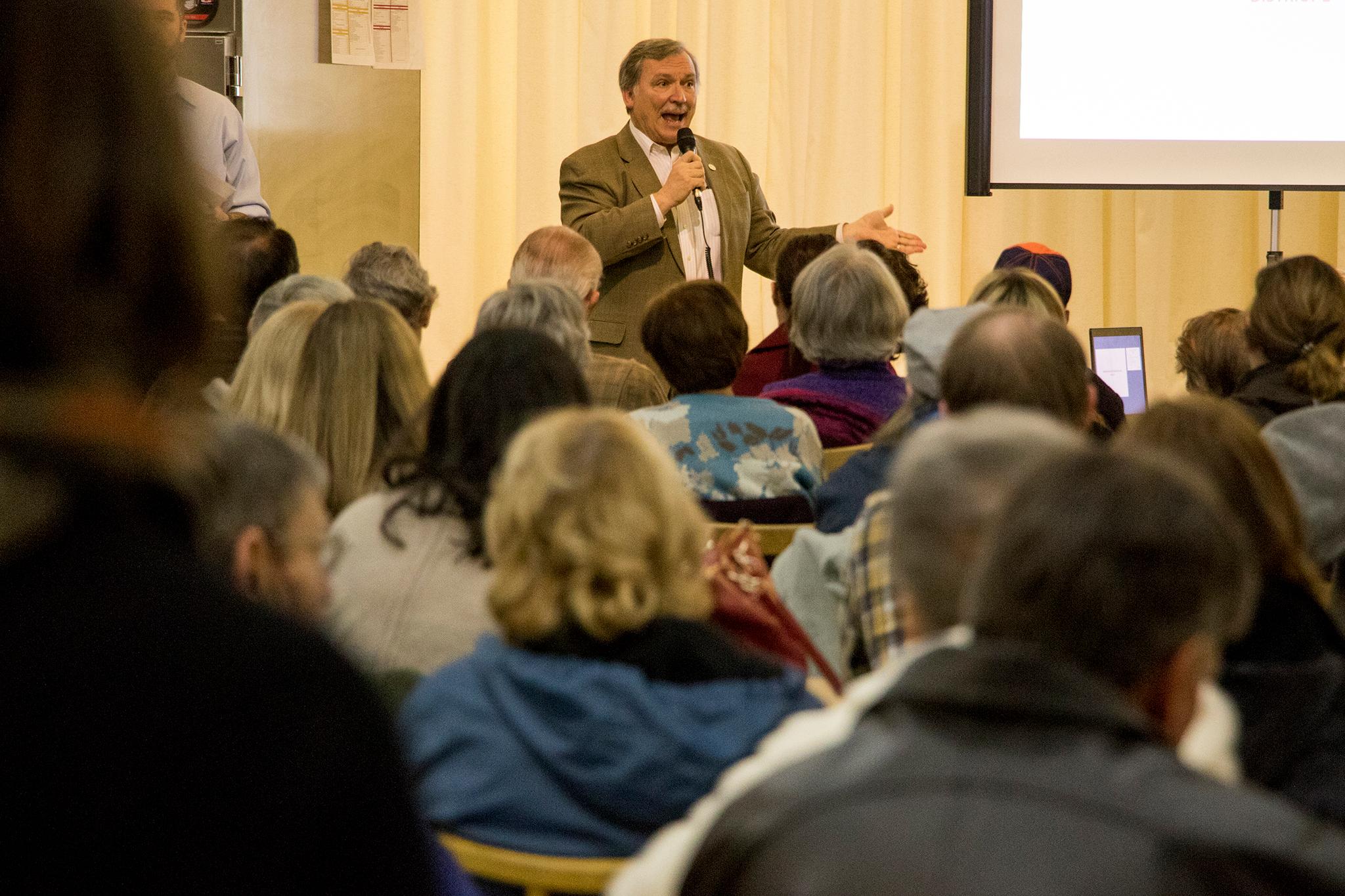
Flynn noted that dorms are a good skeleton for new affordable housing. But in the end, the councilman said what happens in Loretto Heights is mostly up to residents.
"I don't care what it ends up being," he said, "as long is it reflects the wishes of the district."
A steering committee that includes reps from the city, the nearby neighborhoods and the developer have developed six broad goals: the neighborhood should be authentic, easily navigable, economically diverse and vibrant, environmentally resilient, healthy, and affordable and inclusive.
How affordable and inclusive is a question the developer, Witkiewicz, said he could not answer yet.












